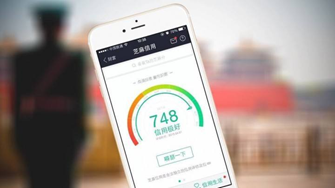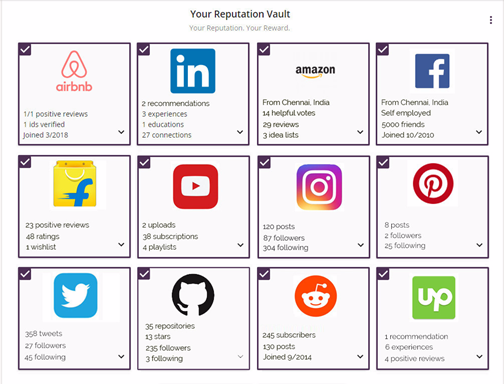China’s social credit score or a totalitarian Black Mirror like future is not the only way
China’s social credit score will fully roll out in 2020. Under this system, a huge range of infractions can result in stiff consequences through a lower credit score. When your “score” is deemed low enough, penalties can include loss of employment and other opportunities. Those that are deemed “trustworthy” get rewards, like booking hotel rooms without deposits [1].
Liu Hu is a 43-year-old Chinese journalist who lives in the south-west China, was “dumbstruck” and was surprised to find himself caught up in the system and deemed “untrustworthy”. Mr. Liu was put on a “dishonest personnel” list; a pilot scheme of the social credit score, because of a prior lost lawsuit and an outstanding fine according to the court record. Mr. Liu was banned by airlines when he tried to book a flight last year.
Like the huge number of other citizens deemed to be “untrustworthy” and put on some kind of blacklist, Mr Liu has also been banned from buying a house, taking a holiday, and even staying in a star-rated hotel. The punishments even extend to his daughter, who Mr. Liu now might not be able to send to a private school.
It can work the other way too; one can earn bonus points for compassionate acts and be put on a “trustworthy” list. According to a 2016 report by local Suzhou police, the top-rated citizen had in the city had 134 points for donating one litre of blood and doing more than 500 hours of volunteer work. [2]
The city of Rongcheng, around 500 miles southeast of Beijing, is one place trailing the system and assigning residents individual social credit scores. According to policy documents outlining the project that were recently translated, it’s relatively small in scale. In order to lose points in the system and be put on a “blacklist”, you would need to violate an existing law or regulation in the city.

Is China’s social credit system, the only one that exists around the world?
American Civil Liberties Union’s Speech, Privacy, and Technology Project’s policy analyst, Jay Stanley published a post titled “China’s Nightmarish Citizen Scores Are a Warning for Americans” on October 5, 2015. Jay Stanley routinely blogs about emerging threats to civil liberties. Stanley says he intended to highlight China’s social credit program as a warning for the people in the United States of America. “This really seemed to be pointing the way towards a dark potential future,” he says. “There were frankly a lot of signs and similarities to things happening in the United States,’’ digital profiling can be taken as an example. “The more I look around, the more it seems like an American social credit system is springing up around us — and it doesn’t look all that different from China’s,” Casey Newton, a writer at The Verge, wrote in a newsletter just last month. [3]
Black Mirror, a British speculative anthology series explored this dystopian reality in its 2016 episode “Nosedive” [4]. The episode, written by Charlie Brooker with Michael Schur and the talented actress Rashida Jones, aims squarely at a particular anxiety stoked by a societal obsession with quantification. The main character Lacie (Bryce Dallas Howard) lives in an alternate reality where every tiny interaction is ranked by the people around her. Every interaction shapes a person’s overall standing. The minute you see someone you can also see their “ranking” in society, meaning that reality has morphed into a strange world filled with passive-aggressive friendliness, as citizens attempt to boost their rating with positive reactions.

Lacie is overly obsessed with her ratings; currently she possesses a 4.2 rating but needs to reach 4.5 for a discount on a luxury apartment; however, despite her desperate attempts to be an outgoing and agreeable socialite, her rating seems to have stagnated at 4.2. She finds an opportunity to raise her ratings significantly and after being chosen by her popular childhood friend (Alice Eve) as the maid of honour for her wedding. Her obsession leads to several mishaps on her journey to the wedding that culminate in a rapid reduction in her ratings.
We are closer to the world Black Mirror portrays then we may believe; first impressions are no longer always in person. Our online profiles are vetted by hiring managers and even potential future partners.
While we can control what we put online, but we can’t control how it is viewed and judged by anyone who places our name into a search engine. We live in a society where your reputation and the size of your network is your greatest asset. Individuals can even be judged without them having an online profile — for example, nearly half of employers say that if they can’t find a job candidate online, they were less likely to call that person in for an interview [5].
Today, Sesame Credit, as well as many other enterprises, essentially function like a social credit score with loyalty like rewards programs. Voluntary participants with high scores earn privileges deferring payment for medical expenses and renting a bicycle without placing a deposit, but the scores are not part of a government or overarching social system, and no one is required to participate.
It begs the question — does our data work for us or against us? Can we even take control of it and take advantage of the depth of our data?
Reputationaire is a revolutionary new way of taking ownership of your data and controlling how it is used. It lets you transform your virtual reputation into a tangible asset, letting your online reputation flow between websites and into real life. Our reputation doesn’t have to be in the hands of the government or everyone around us.

But how is this different from Black Mirror and China’s social score?
Reputationaire by default only allows users to be requested for “anonymous” views of their verified online reputation — without revealing the user’s personal information within that data avoiding human bias. Black Mirror and China’s social credit score can let people you don’t want to see your data. In the case of Black Mirror’s Nosedive episode, everyone can see everyone’s score, making it an easy number to obsess about.
Reputationaire allows you to control who you want to see your ratings, and you can decide in what capacity and how much they see.
It takes advantage of the latest blockchain technology, guaranteeing the ownership of ratings to the associated user, as well as ensure that the information cannot be accessed or manipulated by third parties without the user’s explicit consent.
Andrew Hine, Cofounder Reputationaire.
[3] https://www.wired.com/story/china-social-credit-score-system/
[4] https://www.imdb.com/title/tt5497778/
